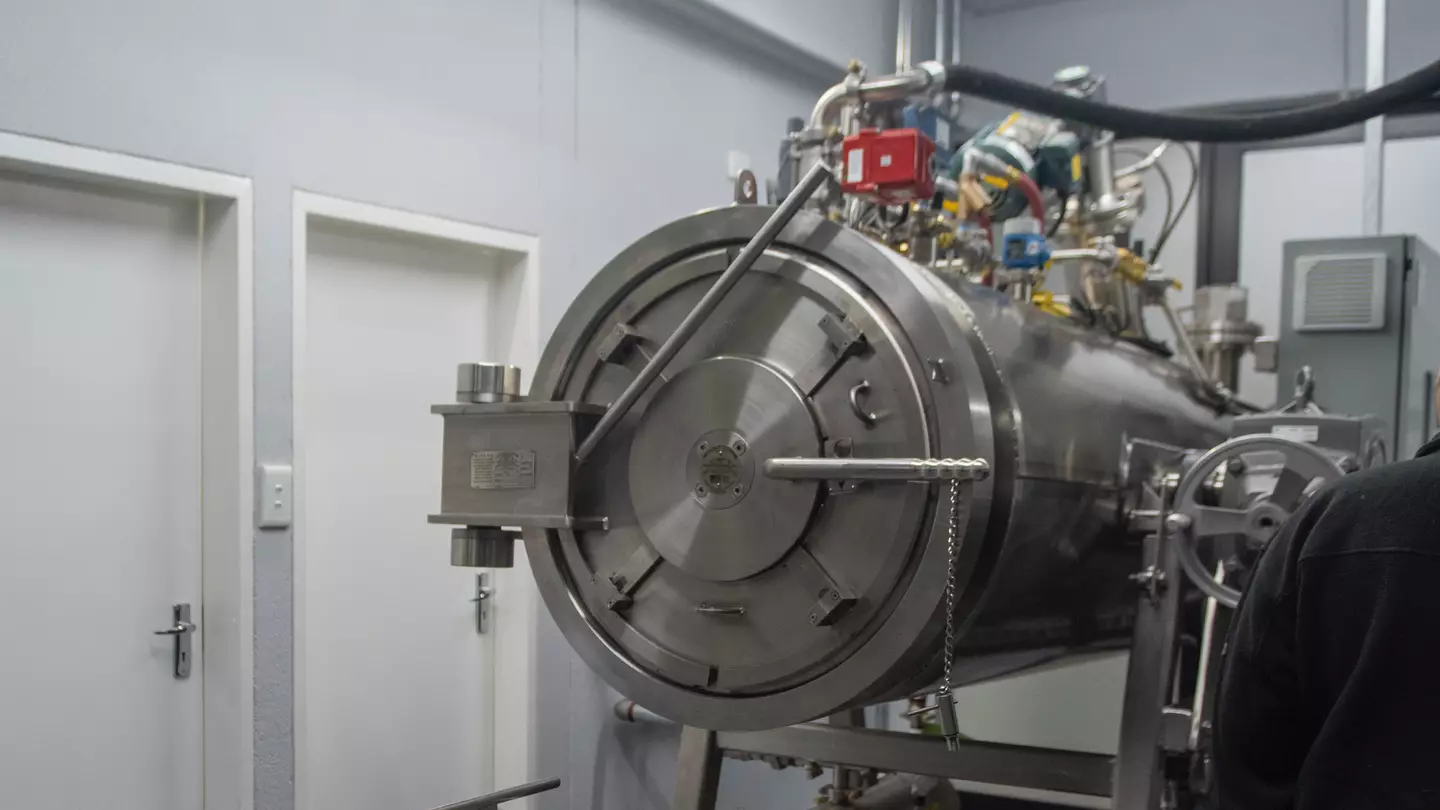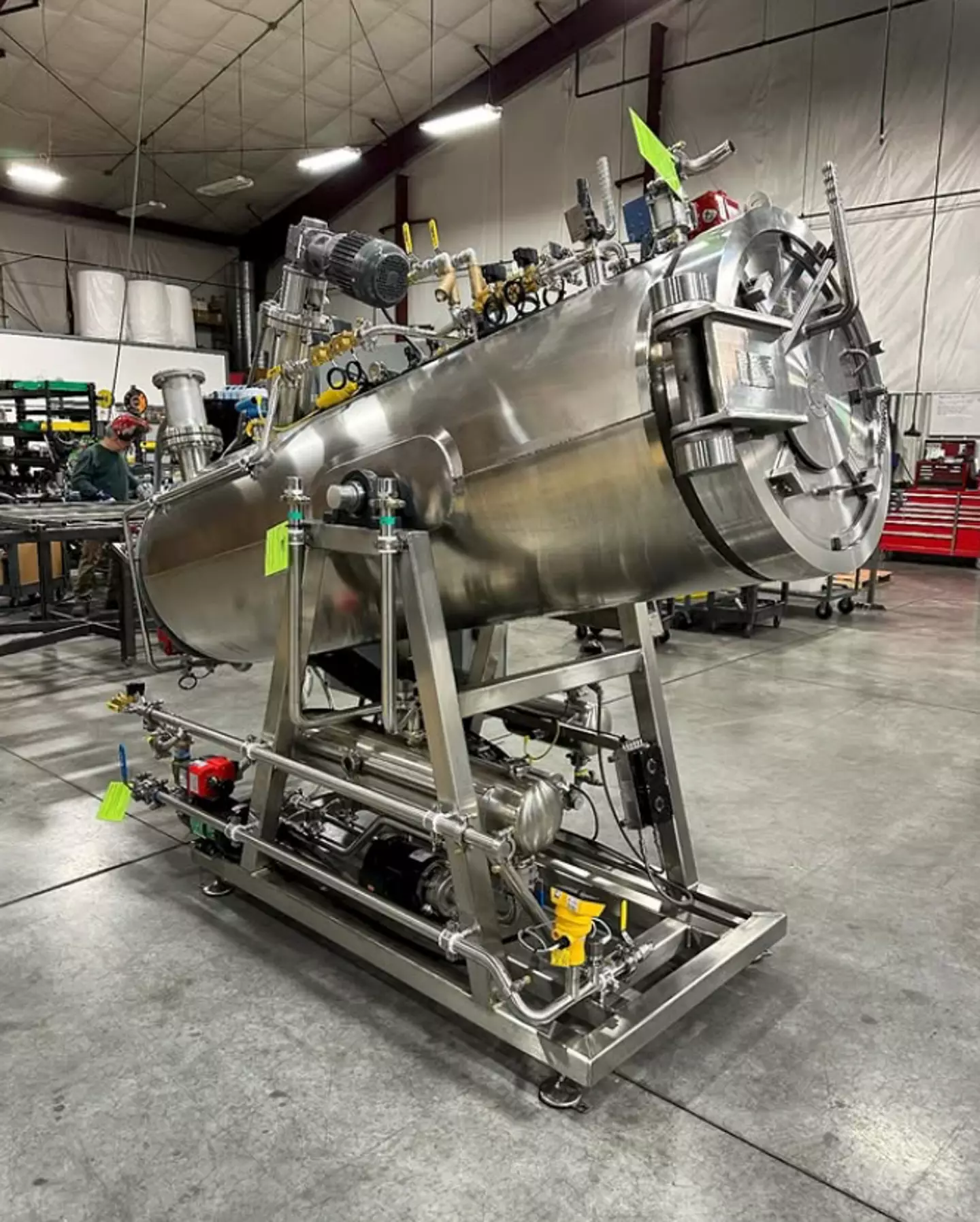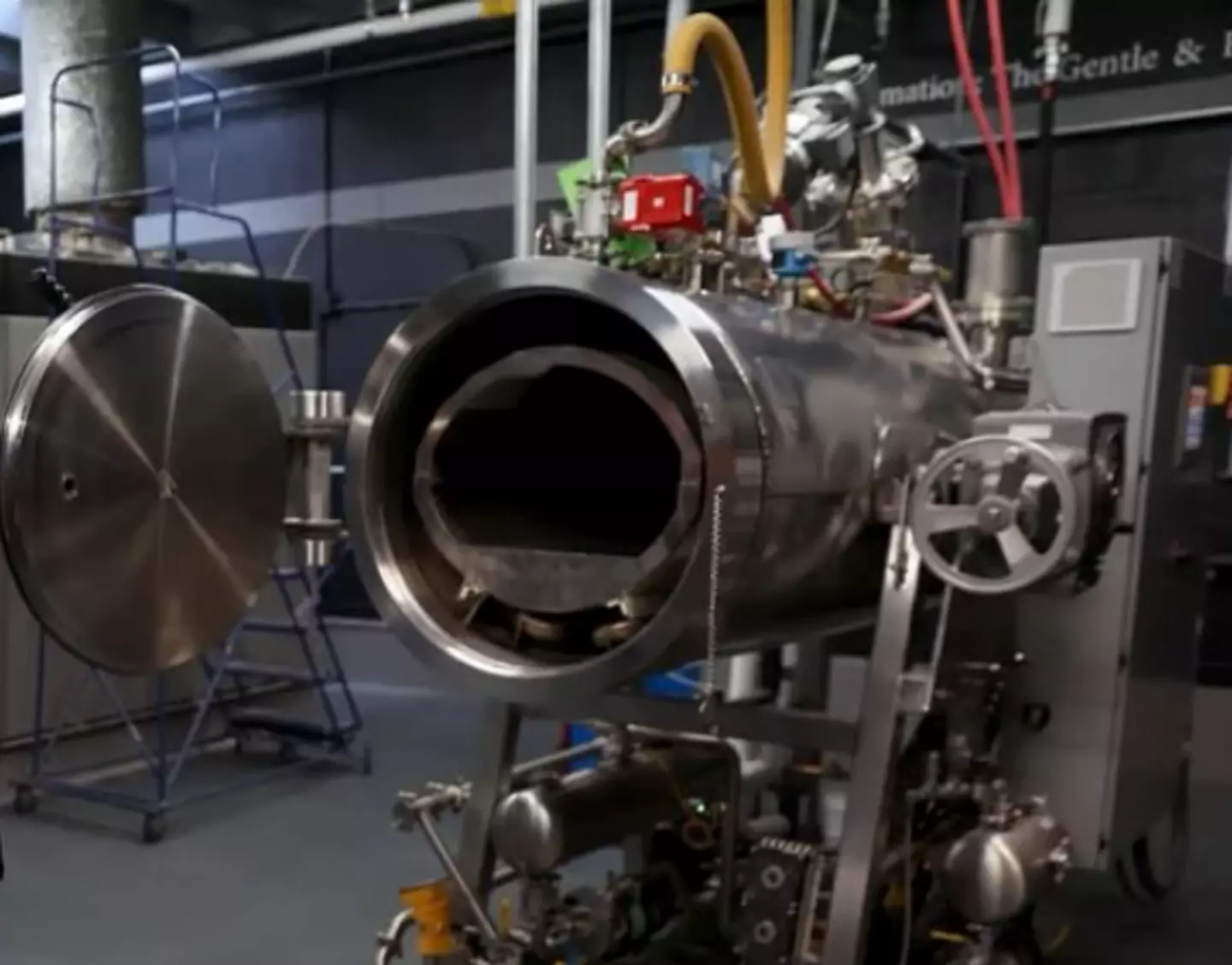
A controversial funeral method currently banned in the UK is reportedly being reconsidered by law makers.
The Law Commission is said to be putting forward a legal proposal to offer an alternative to cremation or being buried.
Known as alkaline hydrolysis or 'boil-in-a-bag', however, people on X have complained that the method is 'gross' and 'disgusting beyond belief'.
What is alkaline hydrolysis?
So the water cremation process involves wrapping a body in a woollen shroud and placing it a pressure vessel containing water mixed with chemicals.
After it is heated up to around 160C, it will take between two and 18 hours for tissues break down.
Advert
Once that's done, the liquid is flushed into the sewers, while any remaining bones are ground down to ash to be returned to the family.
'Boil-in-a-bag' was almost UK-approved in 2023

As reported by The Telegraph, Co‑op Funeralcare was planning to offer the funeral method in 2023, but regulatory gaps blocked its rollout.
"At Co-op Funeralcare, we are committed to serving the needs of our member-owners and clients and offering the most sustainable and affordable services," a spokesman said.
"In 2023, we announced our ambition to pilot Resomation in the UK, and we subsequently worked closely with the Government to explore the regulatory requirements to introduce this service across the nation.
"However, we did not proceed with this as, at the time, we were unable to find a path through the current regulatory framework."
The spokesman said they 'welcome The Law Commission’s review and encourage exploration into alternative methods that provide consumers with greater choice and deliver environmental benefits'.
'A completely different model for disposing of the dead'

Dr Lian Lundy, of Middlesex University, a wastewater specialist, told the outlet that a water cremation system would be easy to install pretty much anywhere.
"We collected the wastewater and analysed it for the sort of parameters used for trade effluent and all the pollutants that we looked at fell well within the range of values they would accept," she said.
"From a technical perspective, for the parameters we looked at, it wasn’t an issue."
The expert was confident that the method 'that could be added to a church or added to any location'.
"So it would potentially be a completely different model for disposing of the dead," Dr Lundy added.
'People don’t really understand it'
The specialist also told the outlet that it's not like having 'a cup of grandad' or 'flushing grandma down the toilet'.
She insisted that 'there’s a lot that goes into the sewer that we don’t really think about - waste from mortuaries and hospitals and all sorts of things that we don’t know about. So from that perspective, it’s not really any different'.
"Some people view it as basically mixing up my loved one with poo in the sewer and they don’t like that," Dr Lundy said.
Although yet to be approved in the UK, alkaline hydrolysis is legal in Ireland, some Canadian states and in over 20 US states, among other counties.
In a statement provided to LADbible Group, Professor Alison Young, Commissioner for Public Law and the Law in Wales, said: "The established funerary methods of burial, cremation and burial at sea have existed for a long time. New methods are being developed, and the law has not changed to make provision for them. Our proposals for new legislation would enable the future regulation of new funerary methods. While we are not proposing or advocating any particular methods, we believe a new regulatory framework will enable people to have more choice in future about what happens to our bodies after we die.
"It is important to ensure that this is done sensitively, with appropriate safeguards, and in line with principles that underpin the regulation of existing funerary methods, including the preservation of human dignity. We want to hear from anyone with an interest in, or knowledge of, this area."